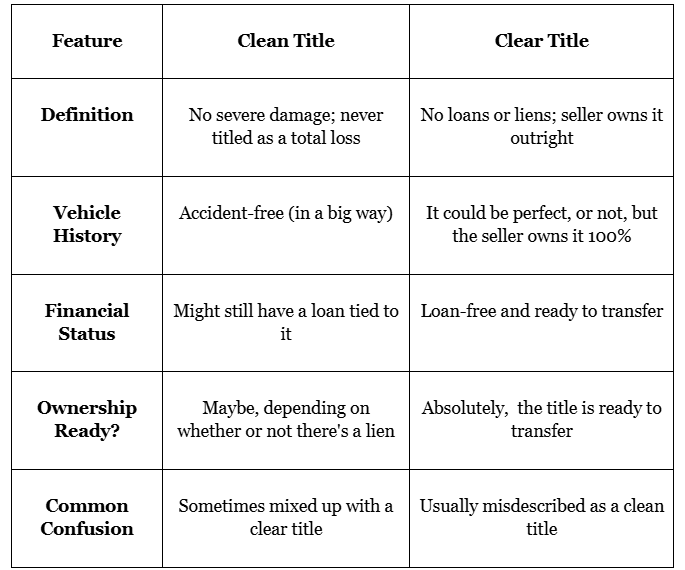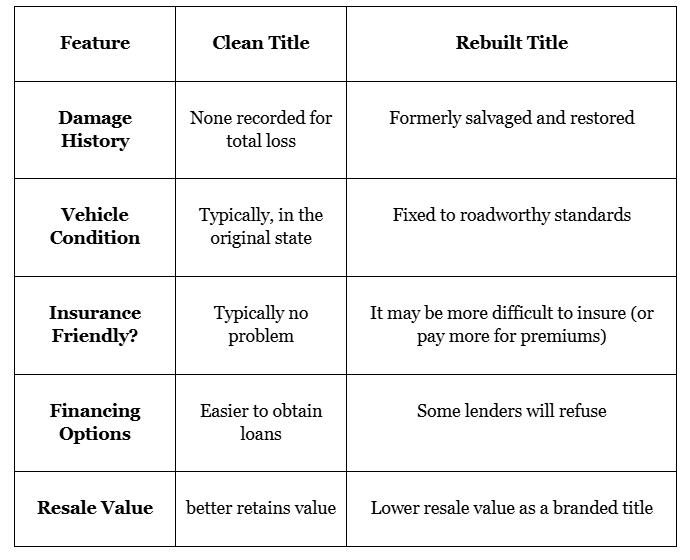Selling a car sounds easy until you try it. Countless messages, low offers, no-shows, and uncomfortable meetings; selling your old car can seem like a full-time job. But what if there was a quicker, simpler method that avoids all the trouble?
Car auctions are that way.They are quick, effective, and frequently more lucrative, particularly if your vehicle isn’t in ideal shape. This guide will outline the detailed procedure for selling your car at an auction in the auto auction USA market. No matter if you have a polished commuter or a scratched-up project vehicle, this guide will assist you in maximizing its value.
Why Sell Your Car at Auction?
If you’ve never considered an auction before, you’re not alone. Most people assume auctions are just for rare classics or dealers. Not true.Selling through an auction, especially on platforms that cater to buyers who purchase salvage vehicles, can offer huge advantages:
- Speed: Cars often sell within days, not weeks.
- Visibility: Your vehicle is shown to thousands of buyers across the auto auction USA market.
- Less Stress: No strangers at your door, no back-and-forth negotiations.
- Competitive Offers: Bidders can drive the price higher than you expect.
And here’s the best part: even cars with damage, salvage titles, or mechanical issues can sell well. Some buyers are specifically looking for that.
Step 1: Pick the Right Auction Platform
All auctions are not created equal.If your car is clean and in great shape, a public auction might work. But if it has issues, or if you simply want access to more serious buyers, consider dealer auctions. These are where pros, mechanics, rebuilders, and resellers hunt for deals.
The catch? Dealer auctions usually require a license.That’s where working with a licensed broker like Salvage Reseller gives you an edge. They give private sellers access to top-tier platforms like Copart, where many buyers go to purchase salvage vehicles and fixer-uppers every day.With the right partner, you’re not just selling a car, you’re selling it in the best possible marketplace.
Step 2: Get Your Paperwork Ready
Before you list your car, make sure you’ve got your documents in order. Here’s what most auctions require:
- Vehicle Title (clean, salvage, or rebuilt)
- Lien Release if you had a loan
- Odometer Disclosure (usually part of the title)
- Damage Disclosure if applicable
If you’re selling through a platform that works with buyers who often purchase salvage vehicles, damage disclosure isn’t a dealbreaker; it’s expected. Just be honest.
Step 3: Determine the Right Price
One of the most common mistakes sellers make is overpricing their car.Buyers at auctions are savvy; they know what vehicles are worth, especially in the auto auction USA market. So do your research.Look at similar listings:
- Year, make, and model
- Mileage
- Condition
- Title status
You can set a reserve price if you want a safety net. That’s the minimum amount you’re willing to accept. But if you’re confident in your listing and using a broker like Salvage Reseller, you might want to let the bidding run wild. Sometimes, no reserve means more eyes, more bids, and a higher final price.
Step 4: Prep Your Vehicle to Sell
No, it doesn’t need to look like it just rolled out of a showroom, but a little effort goes a long way. Buyers make snap judgments. If your listing looks rough or confusing, they’ll scroll right past it. Even if your vehicle is being sold for parts or needs repairs, a clean and detailed listing builds trust.
Here’s how to present your car well:
- Wash the exterior and vacuum the interior
- Take clear, well-lit photos from every angle
- Highlight the good (new tires, recent repairs)
- Disclose the bad (accidents, damage, mechanical issues)
The goal isn’t perfection, it’s honesty and clarity. Serious buyers, especially those who purchase salvage vehicles, want the full story.
Step 5: List Your Car and Go Live
This is where the magic happens.With a platform such as Salvage Reseller, you will go through a straightforward listing procedure that involves:
- Vehicle information (VIN, mileage, specs)
- Title status (clean, salvage, rebuilt)
- Description (condition, recent work, known issues)
- Photo upload
Once your listing is approved, it goes live, reaching thousands of potential buyers all across the auto auction USA network. And then the bidding begins.
Step 6: Watch the Bids Roll In
Auctions generally last for several days. Certain bids arrive ahead of time, whereas others intensify in the closing moments. If you’ve established a reserve, you’ll receive a notification once it’s reached. If you’ve gone without a reserve, expect a fast and exciting finish. Competitive bidding can drive the price higher than you imagined.
During the entire process, a broker such as Salvage Reseller ensures you stay informed, so you’re never uncertain about what is occurring.
Step 7: Finalize the Sale and Hand It Off
Once the auction ends and a winner is confirmed, here’s what happens:
- Payment is collected securely through the platform
- The buyer arranges for pickup or transport
- You transfer the title
- The deal is done
Just like that, your car is sold, and without the stress of private listings or time-wasting messages.
Pro Tips for a Successful Auction Sale
Want to go from good to great? Use these tried-and-true tips from sellers who’ve been there:
1. Be Transparent
Buyers who purchase salvage vehicles expect flaws, but they need accurate information to bid confidently.
2. Set a Competitive Starting Price
Don’t scare off early interest with a high opening bid. Let the market build momentum.
3. Use a Trusted Broker
Selling through Salvage Reseller means less guesswork, faster listings, and better access to top-tier auction buyers.
4. Stay Available
Respond quickly to platform questions or updates. A smooth process encourages serious buyers to follow through.
Frequently Asked Questions (FAQ)
- Are cars that have been salvaged or rebuilt permitted to be sold at auction?
Certainly! These vehicles are indeed highly sought after, particularly by purchasers interested in parts, restorations, or reselling. Simply state the title status clearly.
- Is a dealer’s license needed to sell at auction?
Not if you work with a licensed broker such as Salvage Reseller. They manage entry to dealer-exclusive auctions, enabling private sellers to post without a permit.
- Which documents are required to auction a car?
You will require the title, an odometer reading, a lien release if there is a loan, and a damage disclosure if applicable. That’s all.
- How should pricing be approached?
Begin with competition. Establish a reserve if necessary, but numerous sellers forgo it to encourage bidding wars. Allow the market to drive the price higher.
- What occurs post the sale of the car?
The payment is confirmed, the buyer schedules the pickup, and you hand over the title. No gatherings, no discussions, simply a quick, effortless transaction
Final Thoughts
Auctioning your car may seem unusual, yet it’s quite straightforward and remarkably efficient. Regardless of whether your vehicle operates flawlessly, requires repairs, or has a salvage title, there exists a market for it.
Thousands of buyers across the auto auction USA network are actively looking to purchase salvage vehicles and fixer-uppers every day. With the right preparation and support from a trusted platform like Salvage Reseller, your car could be the one they’re after. So if you’re ready to skip the hassle and sell your vehicle with confidence, don’t wait.







